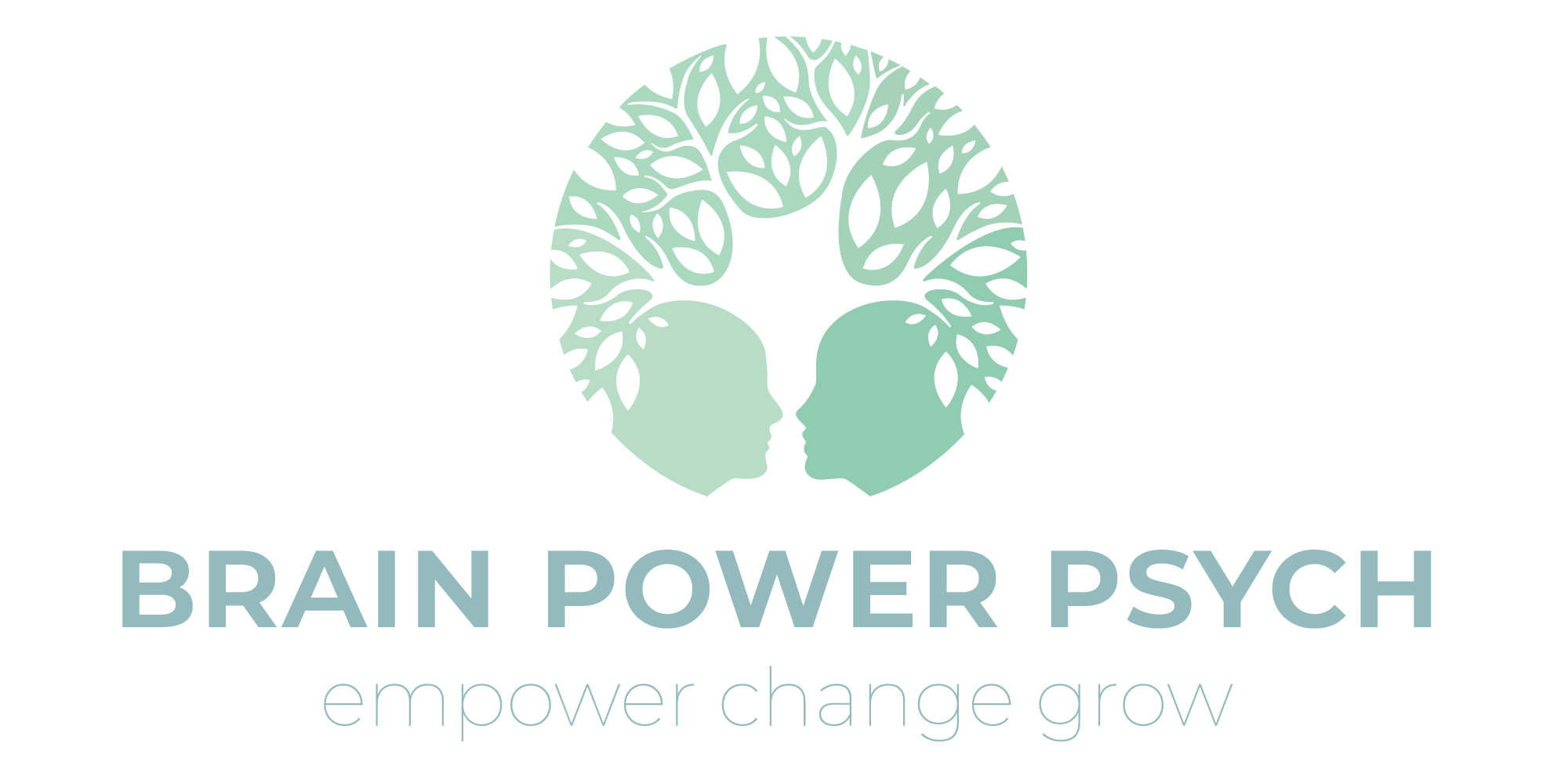During the holiday season, it’s easy to hear holiday music playing in stores and groups of people shopping for gifts to give to their loved ones. Although the holidays are generally labeled as the jolliest times of the year, the holiday season can, understandably, be stressful for many individuals. Such strain can have a huge impact on our overall physical and mental wellbeing.
It is vital to recognize that we have more control than we think during these difficult times. In addition, even though we can incorporate numerous coping strategies, sometimes we can still feel overwhelmed or depressed. Thus, speaking with a mental health provider can be helpful in working through holiday stressors to alleviate the negative impact they have on our overall wellbeing.
Below are the most common concerns that are associated with the holidays, as well as recommendations from Brain Power Psych for ways to address them.
Not Feeling the Holiday Spirit
Being surrounded by happiness can be a trigger when you don’t feel the same level of cheerfulness as others. There is external pressure to be social and joyous during this time and it can be challenging to speak up if you feel otherwise. Stress can also arise from feeling pressured to meet expectations for celebrating the holidays in a certain way rather than creating your own tradition or not celebrating at all.
Helpful Tips:
- Recognize your feelings and that you don’t need to force yourself to be happy and conform to how others feel. If possible, surround yourself with others who feel similarly and celebrate your own customs or create unique ones.
- If you choose to celebrate the holidays a different way, communicate this early in the season with your loved ones so that everyone knows what to expect.
Gift Giving Stress
It can be easy to get engrossed in the commercialization of the holidays. This can create certain expectations in terms of going over budget in addition to finding the perfect gift for each person on your list. The act of gift giving can be a major source of anxiety and stress, especially during the holiday season.
Helpful Tips:
- Creating a realistic budget that you are comfortable with and sticking to it can be one way to manage the stress associated with gift giving.
- Taking part in fun holiday traditions like Secret Santa or White Elephant, where people exchange gifts with one another can help with managing your budget.
- Another budget-friendly way to manage distress is to simply offer the gift of helping others. The act of helping others with simple tasks can be viewed as more valuable than a tangible gift.
Feeling Overwhelmed by Loss and Grief
When individuals are experiencing trauma, loss, grief, or feelings of loneliness, it can be natural to compare their situations to others. However, comparing your personal situation with others can further intensify feelings of sadness and loneliness.
Helpful Tips:
- If taking part in holiday activities is challenging, you do not need to force yourself to participate in these celebrations. Instead, you can connect with a support group, a mental health provider or loved ones who understand your situation.
- As much as possible, let your family and friends know how they can support you, whether it be helping you with daily tasks or meeting up for a hike or walk. Sometimes people want to help but don’t know what to say or where to start, so maintaining open communication is key.
Feeling Alone and Isolated
Even though many might have family and friends to connect with during this time of the year, there is still a danger of becoming isolated. This isolation doesn’t necessarily mean being alone, but also feeling alone in the presence of others. Sometimes it can be tough to reach out to loved ones, especially while managing the many stressors of the holiday season.
Helpful Tips:
- Think about your happy place, this means reminding yourself of the people, places or things that make you feel good inside.
- Scheduling phone calls or video chats with friends and family on a weekly basis to say connected can also help.
- Engaging in calming and relaxing activities such as reading, meditation or journaling can be beneficial tools to cope.
- Remembering to take care of ourselves is always important, especially during the holidays. The act of self-care during times of loneliness can help people cope with feelings of isolation. Such acts of self-care include listening to your favorite music, taking a nice hot bath/shower, positive affirmations, or using coloring books can help you navigate these emotions.
Seeking help from a mental health professional can help you learn skills to manage these stressors, not only during the holidays, but in everyday life. To learn more about how therapy can be beneficial to you, feel free to contact Brain Power Psych. We are here to help you.
